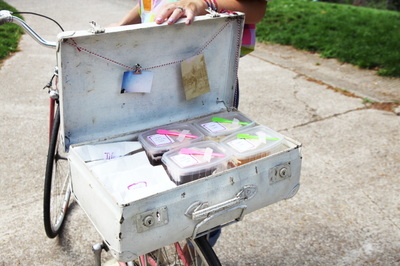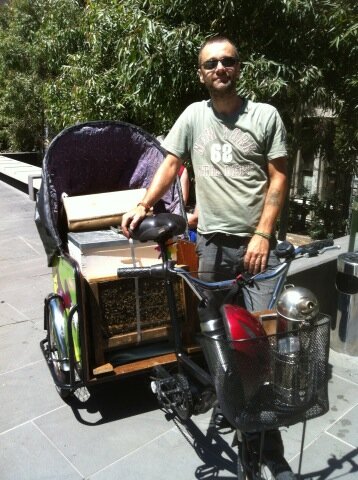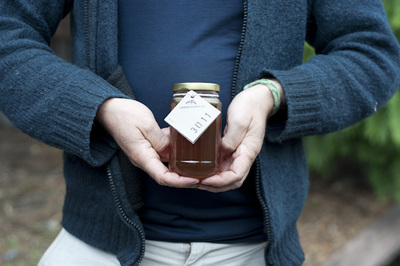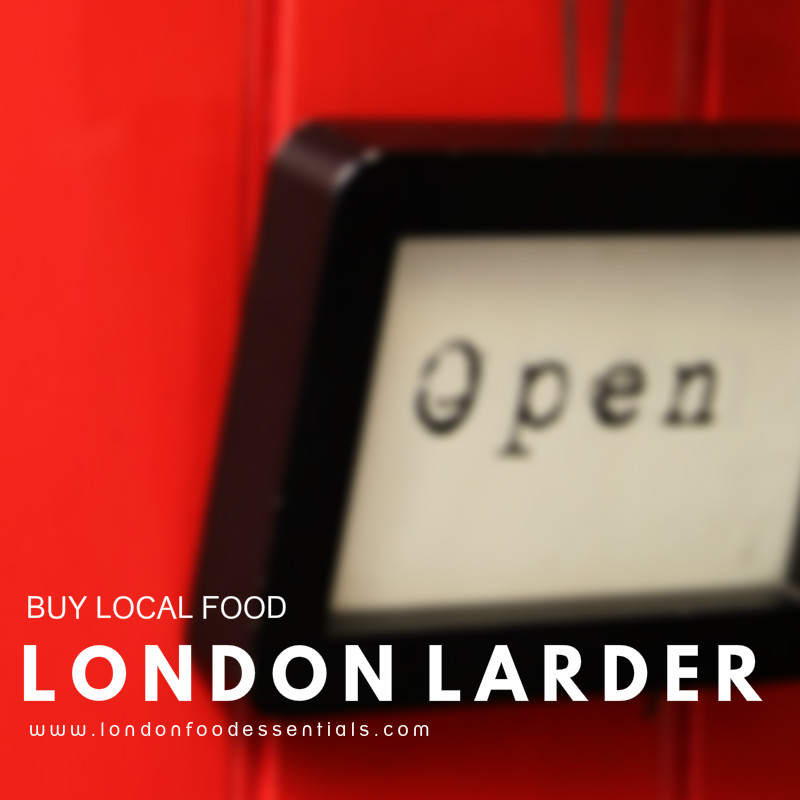|
When you think of street food, food trucks immediately come to mind. These ubiquitous four-wheeled caravans epitomise our street food culture and are a mainstay of local festivals, food events and farmers markets. Yet, there is a new kid in town — the food bike. Ultra-local, shining with green credentials, and the perfect start-up, these two-wheelers are redefining street food as we know it with their take on food-to-go. What’s the appeal of the bike for city dwellers and food entrepreneurs? When it came to launching her gourmet sandwich business in 2010, Tifamade’s Tiffany Iung wanted to combine her love of biking with her love of feeding people. Tifamade’s menu of hand-made sandwiches, including gluten-free and vegan options, changes daily. She sources ingredients from her local farmer’s market, and delivers to customers on her pink push bike. Like Tifamade, many food bike owners are self-described bike enthusiasts. Take Rie Sawada for example. She has travelled the world, serving her hand-brewed coffee and handmade sweets from her bike and mobile business, CharRie’s Café (Chari means bike in colloquial Japanese). In April 2014, she concluded her European coffee bike tour that took her from Keirin Cycle Culture Café in Berlin back to her home town of Nagoya, Japan via Portugal, Nice, and Santa Cruz. Keeping business local is the lifeblood of most food bikes, many of whom limit their delivery circuit to their own neighbourhoods. Another famed example is New York City’s MilkMade Ice Cream. This well-established subscription-based company makes small batch, craft ice cream from locally sourced and sustainable ingredients. Every month MilkMade Ice Cream’s ‘milkmaids’ take to their bikes to deliver ice cream to subscribers in Manhattan and Brooklyn. Delivery times are agreed upon in advance and are set for a three-hour time slot. (Deliveries are packaged with dry ice to keep their ‘scream cold.) MilkMade Ice Cream even has an online community that posts about their favourite flavours such as Pop Tarts, Key Lime Pie, Salted Watermelon, and Spiced Apple Cider Donut. Owing to their limited size and manpower, coffee, ice creams and prepared artisanal foods are the staple of most food bikes. Yet such drawbacks have inspired rather than deterred vendors to create new food concepts. Case in point is The Travelling Gin Company. Ed Godden and Joe Lewis’s pop-up drinks project serves classic gin and tonics and other cocktails from bike bars at festivals, shop launches, events and even weddings. So dedicated are TGC to the Great British institution of the G&T that they have partnered with Ebeltoft Farm Brewery to create their own colonial tonic. Another attractive feature of the food bike is its affordability. With a small amount of cash and a lot of enthusiasm a business idea can be quickly turned into pedal-powered enterprise. Food Bikery agrees. This UC Berkeley’s Big Ideas project is lobbying for food bike vendors to be able cook at public markets to encourage this two-wheeled business option. This is currently not possible due to codes for mobile food facilities. While it is easy to envisage such a bike-fuelled menu, it’s important that the original appeal of the bike doesn’t get lost — its green credentials. Lyndon Fenlon of Urban Honey Co. delivers his very local honey by rickshaw (a unique take on the food bike) from his hives across inner city Melbourne. All Lyndon's honey is sold within five kilometers of its point of production and his rickshaw reflects his broader commitment to a community-focussed and sustainable business. Craved holds a similar philosophy delivering its London-based small batch food and drink orders across the city on brightly coloured cargo bikes in partnership with shutl. So look out for your local food bike — stop and say hello, sample some great food and drink, even become a subscriber. If you can’t find one, maybe start your own. This article was originally published in Countlan Magazine. All images were sourced from producers.
0 Comments
Leave a Reply. |
ARCHIVES
February 2017
|












